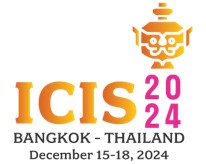Loading...
Paper Number
2339
Paper Type
Short
Abstract
This study explores the efficacy of educational materials such as interactive textbooks in computing education, focusing on how these digital tools influence student engagement and academic performance across online and in-person teaching modalities. Leveraging network analysis, the research investigates the interaction patterns and engagement dynamics facilitated by these educational resources. The primary objective is to assess whether interactive textbooks can mitigate the disparities often associated with online learning environments and enhance the educational experience uniformly across modalities. Our analysis reveals that interactive textbooks significantly enhance student engagement, which correlates positively with improved academic outcomes, supporting the hypothesis that enhanced interaction with educational materials boosts academic performance regardless of the teaching format. The findings suggest that interactive textbooks serve as a potent tool for equalizing educational opportunities and outcomes, offering a customizable and engaging learning experience that can adapt to various student needs and preferences.
Recommended Citation
malisetty, Saiteja; Rastegari, Elham; Siu, Ka-Chun; and Ali, Hesham, "Bridging Learning Gaps in Computing Education: A Focus on Assessing the Impact of Accessing Educational Material under Different Teaching Modalities" (2024). ICIS 2024 Proceedings. 7.
https://aisel.aisnet.org/icis2024/learnandiscurricula/learnandiscurricula/7
Bridging Learning Gaps in Computing Education: A Focus on Assessing the Impact of Accessing Educational Material under Different Teaching Modalities
This study explores the efficacy of educational materials such as interactive textbooks in computing education, focusing on how these digital tools influence student engagement and academic performance across online and in-person teaching modalities. Leveraging network analysis, the research investigates the interaction patterns and engagement dynamics facilitated by these educational resources. The primary objective is to assess whether interactive textbooks can mitigate the disparities often associated with online learning environments and enhance the educational experience uniformly across modalities. Our analysis reveals that interactive textbooks significantly enhance student engagement, which correlates positively with improved academic outcomes, supporting the hypothesis that enhanced interaction with educational materials boosts academic performance regardless of the teaching format. The findings suggest that interactive textbooks serve as a potent tool for equalizing educational opportunities and outcomes, offering a customizable and engaging learning experience that can adapt to various student needs and preferences.
When commenting on articles, please be friendly, welcoming, respectful and abide by the AIS eLibrary Discussion Thread Code of Conduct posted here.



Comments
03-Learning